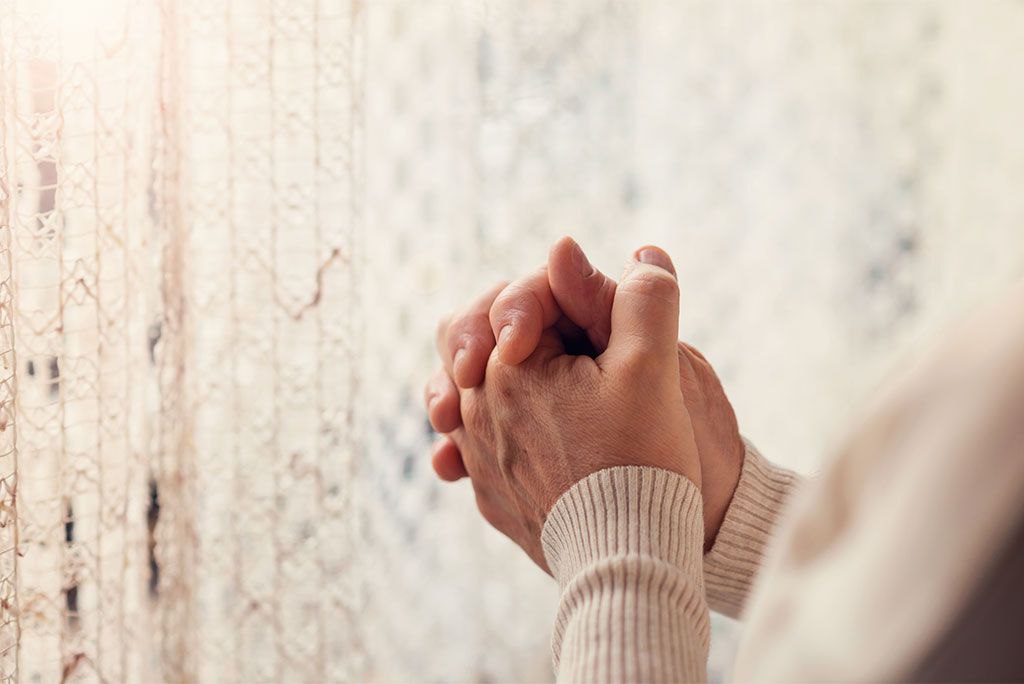
The Link Between Spirituality and Longevity
Reflections & Leadership | Health & Aging
 The study of aging—gerontology—is a science that has made incredible progress over the last 30 years. Gerontology now acknowledges that it is important to consider the entire person, remembering that as well as physical needs, older adults have spiritual, emotional, and social needs.
The study of aging—gerontology—is a science that has made incredible progress over the last 30 years. Gerontology now acknowledges that it is important to consider the entire person, remembering that as well as physical needs, older adults have spiritual, emotional, and social needs.
Elizabeth Scott, M.S. wrote in Spirituality and Mental Health: Benefits of Spirituality, "While people use many different religions and paths to find God, research has shown that those who are more religious or spiritual, and use their spirituality to cope with life, experience many benefits to their health and well-being."
Spirituality and religious activity have been a source of comfort and stress relief for many people for hundreds of years. People frequently report that their spiritual beliefs and practices are major sources of personal strength. In fact, according to a study from the University of Florida in Gainesville and Wayne State University in Detroit, older adults use prayer more than any other alternative therapy for health and 96% of study participants use prayer specifically to cope with stress.
A recent Mayo Clinic health letter suggested that one of the best ways to improve our chances to live longer is to recognize the value of spirituality in our lives. Nurture your spirit no matter what you call your source of inspiration advised the Mayo Clinic health letter. So how do we nurture our spirit? Here are some research-supported spiritual exercises for stress relief:
- Express Gratitude: Gratitude toward God has been linked with improved health outcomes and can reduce the experience of stress as well. Studies have shown that people who experience gratitude tend to be healthier and that being grateful changes our perception of life for the better. One effective way to increase our gratitude level is to keep a gratitude journal, in which we record all for which we are grateful. This list that can act as a source of well-being when we’re feeling down, and we get into the habit of noticing all that is positive in our lives!
- Pray Often: Prayer can help us feel more connected with God, calmer, safer, and more grounded. This can be a buffer against stress. It also could bring benefits similar to the benefits of meditation, including lower blood pressure, increased immunity, and more. 1 Timothy 4:7b, 8 reminds us, “Train yourself in godliness, for while physical training is of some value, godliness is valuable in every way, holding promise for both the present life and the life to come.” (NRSV)
- Be Optimistic: It may sound trite but believing, “When God closes a door, God opens a window” can encourage us to be optimistic about the future. Those who have a greater trust in God may be more hopeful and research shows many benefits to positive thinking. Trusting God or the Universe or a Higher Power for the 'big picture' can help us develop a more internal locus of control, which brings many benefits as well. How much better to trust our abilities, trust our situation, and trust our God!
- Keep a Journal: As mentioned about under 'Gratitude' writing down our experiences and reactions to people, situations, and items that we’ve read can be very enlightening. Record inner thoughts, dilemmas and “ah-ha” moments. When we review what we’ve written from time to time, it helps us to find patterns and understand triggers for frustration and instances and experiences that bring us joy or satisfaction.
- Find the Lesson: Those who are more spiritual have the benefit of seeing stressful situations as tests of strength, or even as valuable lessons from God. This can be a good distinction, as viewing a stressful event as a challenge can make the event itself feel less threatening. If we feel less threatened, we aren’t as physically reactive to stress, and we may find more effective ways to cope, turning a difficult situation into a path to greater personal growth.
A study published in 2008 by HealthDay.com shows a correlation between longevity and spiritual beliefs. In this study (part of the well-regarded Women’s Health Initiative), women who expressed religious feelings and attended services lived moderately longer than non-religious peers. As with much of the research on religion and health, the type of belief wasn’t a factor.
In the end, it is safe to conclude that belief in a power greater than ourselves often creates optimism and hope and longevity may be the end result of cultivating a positive attitude toward everything in our lives—including our aging bodies, illnesses, and other challenges. What do you think? Could there be a link between spirituality and longevity?
About Barbara Dickens Albert, M.Div.
Rev. Barbara Dickens Albert is chaplain at Green Ridge Village, a Presbyterian Senior Living Community, in Newville, PA. After graduating from Mercy College in Dobbs Ferry, NY with a B.B.A., she received her M. Div. from New Brunswick Theological Seminary (NJ) and is ordained by the Reformed Church in America. She lives in Carlisle, PA with her husband Eugene Albert and dogs Billy and Goat.

